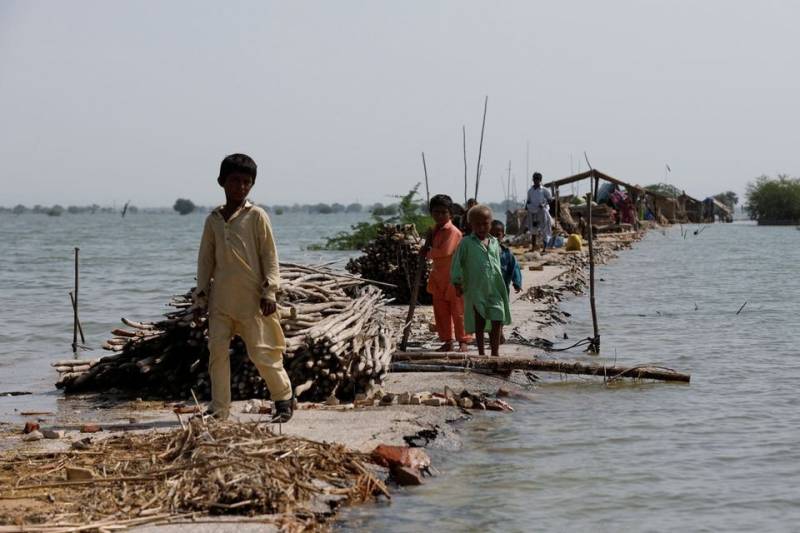The United Nations children’s agency on Wednesday renewed its appeal for $39 million to help the most vulnerable flood victims in Pakistan, which was plagued by water-borne diseases and malnutrition that killed 10 more people in Sindh, including four children.
Unicef said more than 3.4 million children have been uprooted from their homes and the floodwaters had claimed the lives of more than 550 children across the country, including 293 in the worst-affected province of Sindh.
Pakistan has been lashed by unprecedented monsoon downpours flooding a third of the country – an area the size of the United Kingdom – and killing nearly 1,600 people, according to the latest government figures.
More than seven million people have been displaced, many living in makeshift tents without protection from mosquitoes, and often with little access to clean drinking water or washing facilities.
United Nations Humanitarian Coordinator Julien Harneis said Pakistan faced a cascading “second disaster” from diseases such as dengue, malaria, cholera and diarrhoea, as well as malnutrition.
“My personal concern is that mortality from the water-borne diseases, from malnutrition will be higher than what we’ve seen so far,” he told a press conference in Islamabad. “That’s a sober but realistic understanding.”
Around 33 million people have been affected by the floods, which have destroyed around 2 million homes and business premises, washed away 7,000 kilometres of roads and collapsed 500 bridges.
Swathes of farm land – mostly in Sindh – still remain under water. “Families have no food, safe water or medicines,” Unicef said, renewing its $39 million appeal, which is less than a third funded, so far.
The United Nations also expressed its concern over increasing cases of waterborne diseases. “We are deeply worried about the very real possibility of a wave of death and disease which is already stretching its tentacles. A second disaster is looming in sight,” it said in a statement.
The UN said over 134,000 cases of diarrhea and 44,000 cases of malaria were reported in the flood-hit area of Sindh just this past week. “Millions of children are still grappling to survive, and we fear thousands will not make it,” it added.
“Five hundred children died because of the direct impact of the floods,” said Unicef Field Operations Chief Scott Whoolery. “We’re not worried about hundreds. We’re worried about thousands,” he added. “Many of them we probably will never know, they won’t be counted.”
“The absolute priority is to deal with the health crisis that is striking the flood-affected districts right now,” said Harneis said in Islamabad. Doctors and medical workers are struggling to contain the outbreak of waterborne diseases in Sindh.
The unprecedented monsoon rains and flooding, which many experts attribute to climate change, have affected 33 million people and killed as many as 1,569 people across the country since mid-June. Of that number, 701 people — including 31 women — have died in Sindh.






